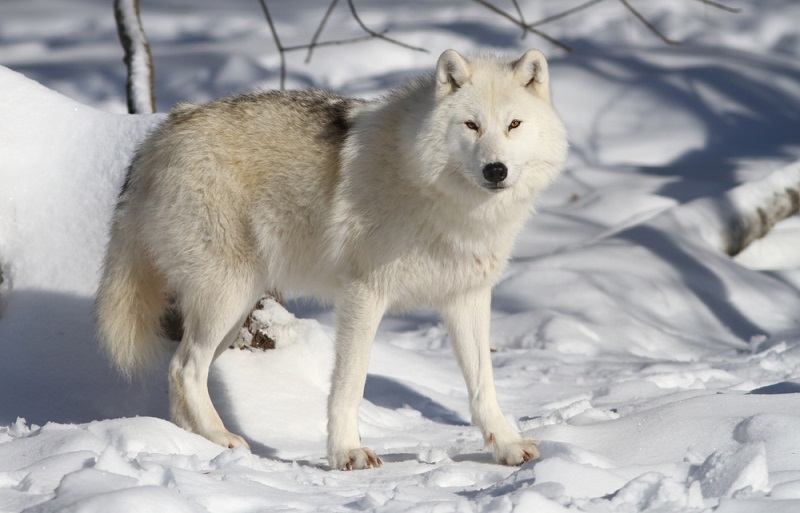In the Shadow of a Rainbow: The True Story of a Friendship Between Man and Wolf
by Phyllis Chesler

My dear friend, Linda Clarke, suggested I read this book by Robert Franklin Leslie, a Cherokee Indian, about the utterly enchanted relationship between Gregory Tah-Kloma, a Chimmesyan Indian of the Tsimshian band, and the glistening, silver-white female leader of a wolf pack whom Tah-Kloma named “Nahani.” This relationship began in 1964 and continued for more than half a decade.
Although I have been in the Canadian Rockies: Vancouver, Calgary, Banff, Lake Louise, the Victoria Glacier, the islands on my way to Victoria, the capital of British Columbia—these sites, however splendid, were nowhere near the wilderness of North-Central British Columbia where Leslie and Tah-Kloma’s adventures took place.
I am a thoroughly urbanized citizen. I doubt I would be able to survive for long in the back woods, through deep snows, lashing rain, swollen rivers that were dangerous to cross (but that must be crossed), living happily on berries, grasses, mushrooms, and fish. I doubt I could successfully fish for my dinner day after day. But mainly, how many of us would be able to survive isolation in Nature for many months, perhaps for a year or more? And do so surrounded by wild and predatory animals as well as by ferocious trappers and hunters out to murder them for mere pleasure or for money?
Civilization does away with such indigenous and ancestral skills and virtues.
Nahani, whose pelt will fetch a large sum, decides to befriend the Indian who walks about on all fours, plays the harmonica, smokes a pipe, follows the same routine daily, sits alone at night before his campfire. She claims him as her own. Their eyes meet. She is “the monarch of the pack.” Her pack obey her and behave in an amazingly military fashion. Tah-Kloma writes: “She must weigh two stones—maybe two and a half—(140 pounds), more than her biggest lieutenant. In animal societies, weight, speed, and guts count for most. Add brains and you come up with leadership. Nahani has all four.”
Eventually, once the wolf pack accept his presence, he sometimes walks on two legs.
Eventually, he feeds Nahani cooked fish—she does not like it raw—and sometimes she stands on her hind legs, puts her forepaws on his shoulder, and licks Tah-Kloma’s face. Years pass—and he finds her again, she remembers him, and their friendship resumes.
I encourage others to read this book to see what communication might be possible between human beings and wild—very wild—animals, and what a consolation such a connection might yield.
The title is based on an Indian saying: “When anything strengthens a bond of friendship, the friends have walked in the shadow of a rainbow.”